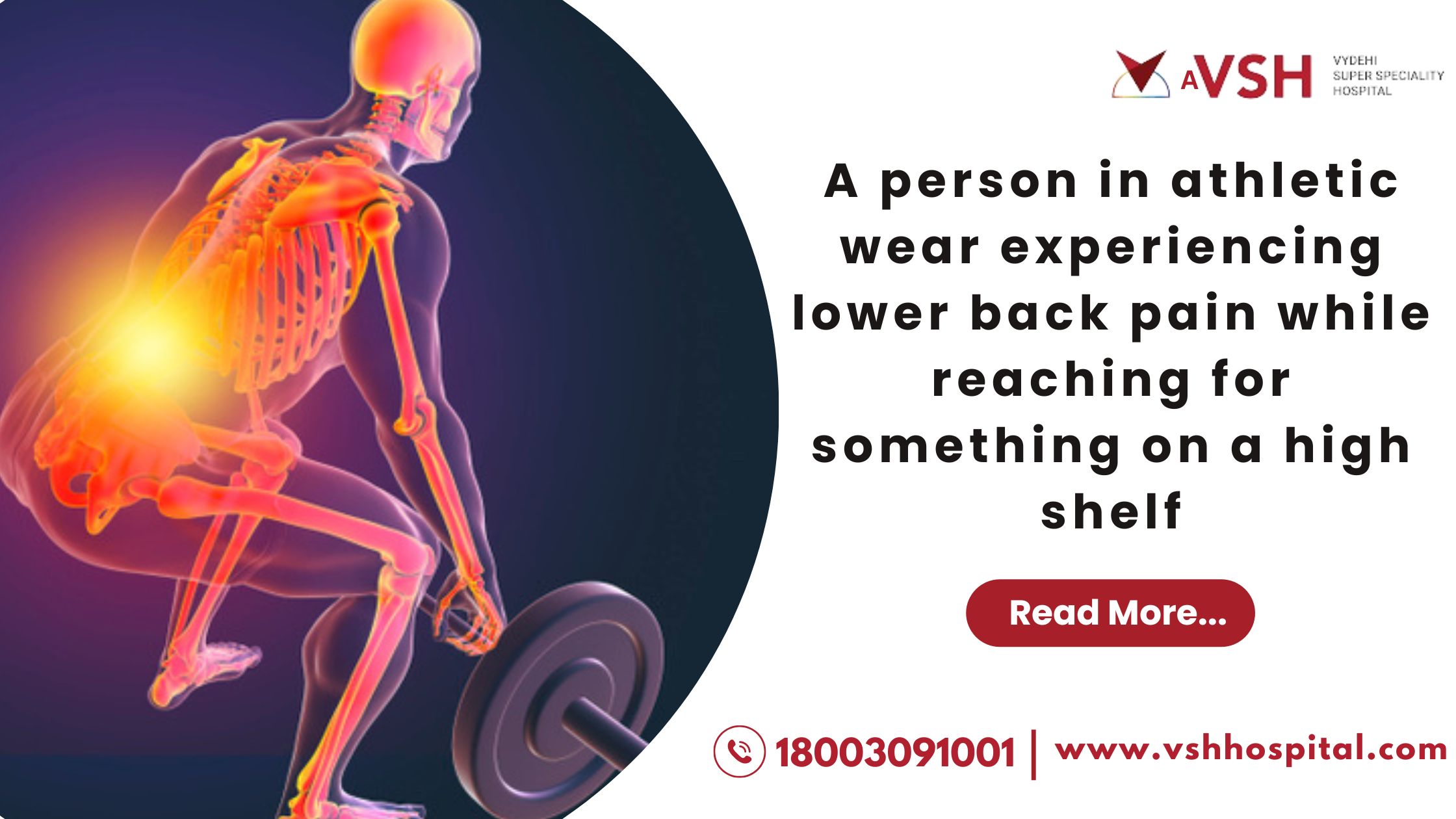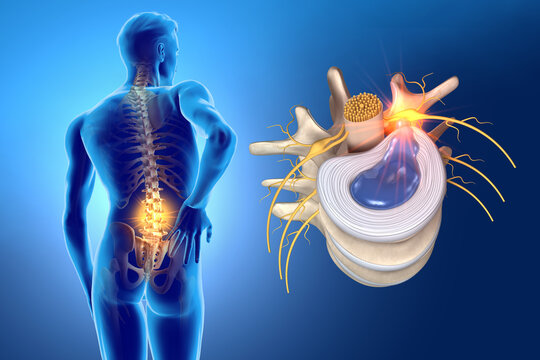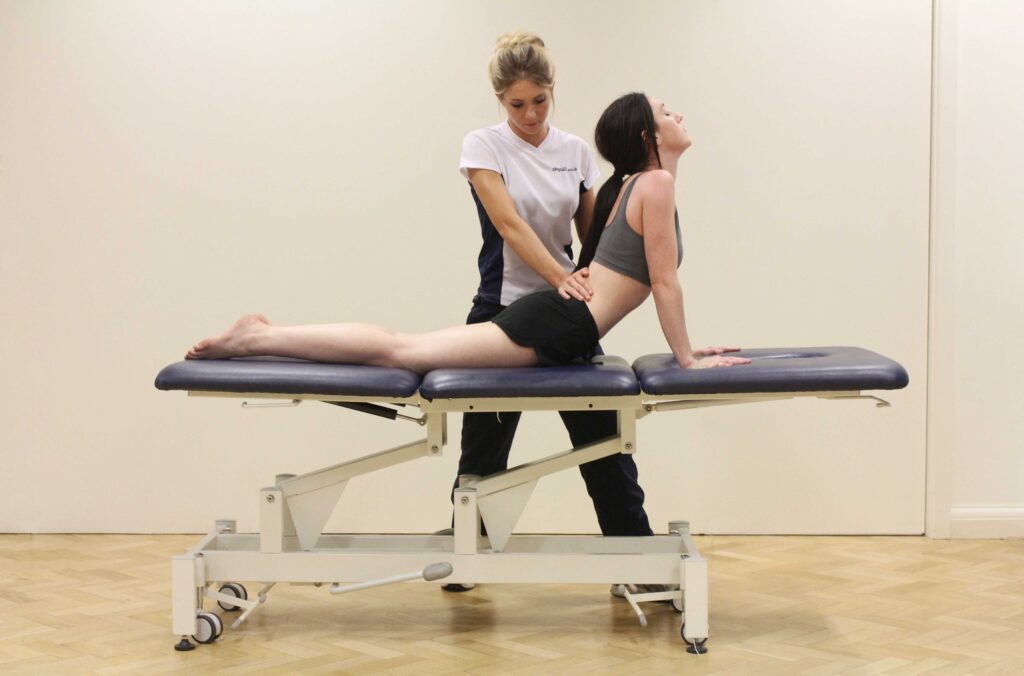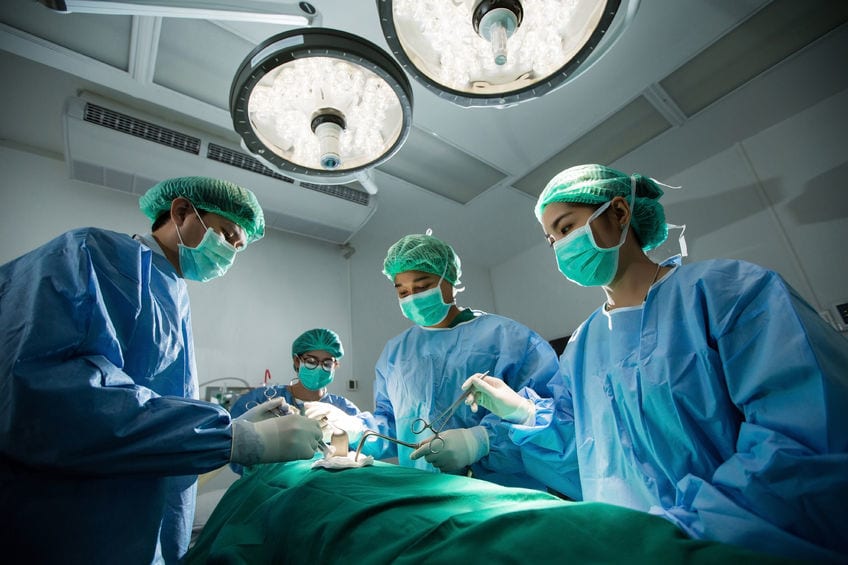
Understanding Slip Discs: A Guide for Active Individuals
Back pain is a common complaint, especially among individuals leading busy lifestyles in urban environments like Bangalore. While most backaches resolve with time and self-care, persistent pain radiating down the leg could indicate a more serious condition – a slip disc, also known as a herniated disc.
What’s a Slip Disc Anyway?

Imagine your spine as a skyscraper. Each floor is a bone called a vertebra, and separating them are squishy cushions called discs. These discs act like shock absorbers, keeping your spine flexible and distributing pressure evenly. Now, picture one of those cushions bulging out – that’s a slip disc. Thus, a slip disc occurs when the soft inner material of a disc bulges outward, potentially compressing surrounding nerves and causing pain.
Symptoms of a Slip Disc
The most common symptom is pain, usually on one side of your lower back and radiating down the leg (sciatica). You might also experience numbness, tingling, or weakness in your leg or foot.

But here’s the thing: backaches are common, and other issues can mimic these symptoms. So, how do you know if it’s a slip disc or just a pulled muscle from that intense weekend badminton session? Therefore, consulting a healthcare professional for an accurate diagnosis is crucial.
Diagnosis: Consulting the Experts
While the internet might be tempting, for proper diagnosis, there’s no substitute for a visit to a qualified professional. A comprehensive evaluation by a qualified physician is essential for diagnosing a slip disc. At VSH Hospital, our team of experienced doctors will conduct a thorough physical examination and may recommend diagnostic imaging, such as an MRI scan, to visualize the affected area and confirm the diagnosis.
Treatment Options: From Rest to Cutting-Edge Tech (VSH Hospital’s Specialty)
The good news? Most slip discs heal with time and respond well to conservative treatment. Common recommendations include:
- Rest and Relaxation/Activity Modification: Give your back a break. No weekend treks to Coorg this time! Reducing strenuous activity allows for disc healing.
- Pain Medication: Over-the-counter or prescription medications can help manage discomfort.
- Physical Therapy: Strengthening your core and improving flexibility can go a long way in improving spinal flexibility, promoting long-term pain relief and preventing future occurrences.

If conservative treatment doesn’t do the trick, minimally invasive surgical procedures offered at VSH Hospital might be an option. We understand the value of getting back to your active lifestyle, which is why we focus on advanced techniques designed for faster recovery times and minimal discomfort.

Remember, prevention is key!
Preventing Slip Discs
Developing healthy habits can significantly reduce the risk of experiencing a slip disc. Here are some tips to keep your back happy:
- Maintain good posture: Practice good posture while sitting, standing, and walking. As the elders say stand tall, shoulders back, and avoid slouching.
- Lift smart, not hard: Bend your knees and use your leg muscles when lifting heavy objects.
- Strengthen your core: A strong core provides stability and support for your entire spine.
- Take breaks: Avoid sitting for extended periods. Get up, stretch, and move around!
- Maintain a Healthy Weight: Excess weight can put additional strain on the spine.
- Regular Exercise: Incorporate regular physical activity into your routine to maintain overall fitness and spinal health.
The Takeaway: VSH Hospital – Your Partner in Spine Health
At VSH Hospital, we’re dedicated to helping people like you live active, pain-free lives. If you’re experiencing persistent back pain or suspect a slip disc, don’t hesitate to reach out to our team of experts. We offer advanced diagnostics, personalized treatment plans, and a commitment to getting you back on your feet as quickly as possible.
Remember, early intervention is crucial. Schedule a consultation today and take control of your back pain!
P.S. Stay connected! Follow us on social media to know about VSH Hospital’s advanced spine and neurology services.
Frequently Asked Questions
1. How do you fix a slipped disc?
Ans: The majority of slip discs respond favorably to conservative treatment methods in Bangalore. At VSH Hospital, our initial focus is on non-invasive approaches such as rest, pain medication, and physical therapy. However, if these measures prove inadequate, minimally invasive surgical intervention at VSH Hospital may be considered to expedite the recovery process. Early diagnosis is paramount. Schedule a consultation with our spinal health specialists to explore treatment options and reclaim an active lifestyle.
2. Can a slip disc happen suddenly?
Ans: Absolutely! A slip disc can strike suddenly, often triggered by an awkward twist or lift. Think heavy grocery bag or that overenthusiastic yoga pose! Age, weak core muscles, and bad posture can also up your risk. The good news? VSH Hospital’s experts can diagnose and treat slip discs – whether it’s a recent or a lingering pain. Schedule a consultation and get back to conquering your to-do list, pain-free!
3. What is a spinal decompression?
Ans: Picture this: gentle stretches creating space between your vertebrae to take pressure off pinched nerves. That’s the idea behind spinal decompression! It’s a non-surgical option sometimes used alongside physiotherapy to potentially help bulging discs retract and ease pain. While VSH Hospital offers a range of treatment approaches, if decompression sounds interesting, talk to our experts to see if it’s right for you!
Also Read:
- Understanding Parkinson’s Disease: Types, Symptoms, Stages, and Treatment
Link: https://vshhospital.com/best-neurologist-hospital-in-bangalore-vsh-hospital/ - Understanding Dementia: Types, Symptoms, Stages, and Treatment
Link: https://vshhospital.com/dementia-types-and-symptoms-hospital-in-bangalore/
- Impact of Epilepsy: A short Guide to Learn the Causes, Impacts and Methods to Manage Epilepsy
Link: https://vshhospital.com/epilepsy-causes-and-symptoms-vsh-hospital/












